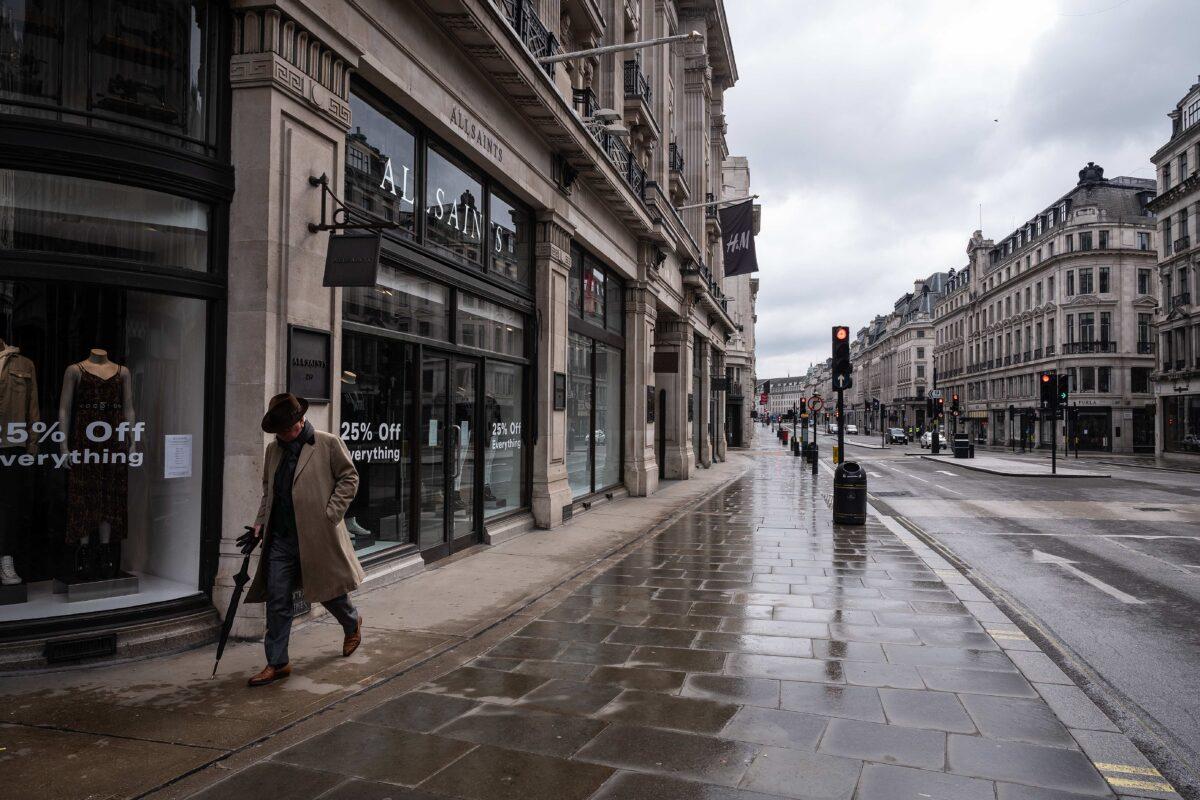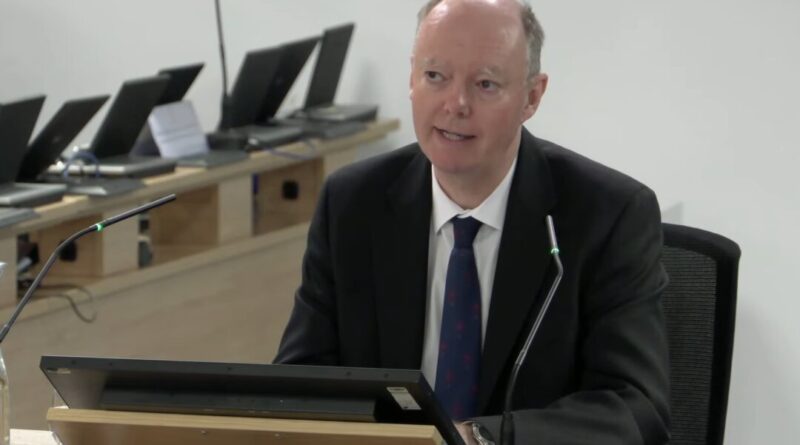Chris Whitty expresses concern that the threat of COVID-19 may have been exaggerated, informs inquiry
The chief medical officer provided testimony to the COVID Inquiry, expressing concerns about whether the government ‘got the balance right’ in public messaging.
Chief Medical Officer Sir Chris Whitty addressed the UK’s Covid-19 Inquiry, stating that the messaging at the onset of the outbreak was “confused” and required a delicate balance between not alarming people excessively and ensuring they took the situation seriously enough.
During his lengthy testimony on Thursday, Whitty expressed ongoing worries about whether the government accurately assessed the level of concern regarding the public safety in March 2020, when the initial lockdown was imposed.
He admitted that at the beginning, the government’s scientific advisers may have been overly cautious. Even in hindsight, he still questions if the appropriate level of concern was conveyed.
Whitty, who was knighted in 2022 for his contributions to public health, shared, “I was concerned at the outset and continue to harbor concerns about whether we accurately gauged the level of concern.
“There was a fine line between instilling excessive fear in people with relatively low risk and not adequately warning them about the risks they faced.
“Balancing this was extremely challenging, and some might argue that we erred on the side of caution at the beginning.”
Whitty testified in module three of the inquiry, focusing on the impact of COVID-19 on the healthcare system across the UK nations.
In his testimony, he acknowledged that achieving a perfect balance in public messaging, especially regarding the directive to stay at home, was challenging. He also noted that the government may have failed to communicate effectively that individuals should still seek medical care at hospitals.
Whitty discussed the confusing nature of the messaging during the COVID era, particularly concerning healthcare workers and the utilization of PPE and masks.
‘Confused Messaging’
“I think the reason that it was confused was that it was not entirely clear who was ultimately responsible for making decisions in this fast-moving situation,” he said. “Quite a lot of people thought they were partially responsible, and that’s always an extremely difficult and dangerous situation to find yourself in.”
Questioned about the decision to implement the initial lockdown to safeguard the NHS, Whitty emphasized that there was no clear definition of what would constitute overwhelming the healthcare system, which he acknowledged was typically under strain.
“The NHS continued to treat sick patients throughout. Actually, there were more people in the hospital who did not have COVID than those who did,” he stated.
“The NHS is under strain every year, even prior to COVID,” he added.

British Prime Minister Boris Johnson gives his daily COVID-19 press briefing at Downing Street in London on March 22, 2020. Ian Vogler/WPA Pool/Getty Images
Whitty, known for his prominent role alongside former Prime Minister Boris Johnson and other health officials during the lockdowns, emphasized the necessity for the UK to prepare for future pandemics.
He cautioned, “We must anticipate another pandemic of this magnitude. That is a certainty.
“For the UK, not globally, this event occurs once every century because the previous one was in 1919,” he mentioned, reflecting on the Spanish flu pandemic.
When asked how the UK could enhance its preparedness for a surge in hospital admissions in the future, Whitty highlighted that the decision on ICU capacity was a political one compared to similar high-income nations.
While discussing his testimony, Whitty did not address vaccine safety or efficacy, as it is planned for a future module review. He stressed that “the key to exiting lockdowns was always through science, as demonstrated by vaccines in this instance.”
He described the so-called “second wave” as particularly challenging but cited the development of vaccines as a beacon of hope for NHS staff after a prolonged ordeal.
Whitty suggested that had the vaccines been delayed by six months, the mortality rate would have been significantly higher. His claim was not contested by the inquiry lawyers.

A man walks up a deserted Regent Street in London on March 30, 2020. Leon Neal/Getty Images
Lockdown Was ‘a Terrible Thing’
He acknowledged that the implementation of lockdown was harsh and underscored the importance of understanding the reasons behind it. Whitty portrayed it as an altruistic sacrifice for younger and healthier individuals to halt their lives to safeguard others.
He mentioned that the UK prioritized COVID-19 research, which came at the expense of research into other illnesses, making it a global leader in this area.
“This focus had repercussions, and we had to be selective about the studies we supported,” he noted.
Whitty emphasized the necessity of research investments to shield the country from future pandemics.
He was pressed by MIND, a charity, regarding the UK’s pandemic preparedness strategy lacking mental health safeguards, especially considering the impact of lockdowns on children and young people.
Whitty stated, “The pandemic planning had several gaps in our capacity,” clarifying the distinction between planning and execution.
He affirmed that lockdowns were not part of the original plan, hence preparing for their consequences, including mental health effects, would have been complicated.
Whitty acknowledged the accelerated rise in mental health issues among children and young people during the COVID-19 era, particularly related to eating disorders. He indicated uncertainty about a potential reversal to pre-2020 trends.
He urged the government to address health inequalities, pointing out higher rates of mortality among poorer individuals and ethnic minorities due to the virus.
Regarding a contentious WHO tweet discrediting the airborne nature of COVID-19, Whitty refrained from challenging them, citing various priorities at the time and the unsuitability of Twitter for complex scientific discussions.
The inquiry is ongoing.





